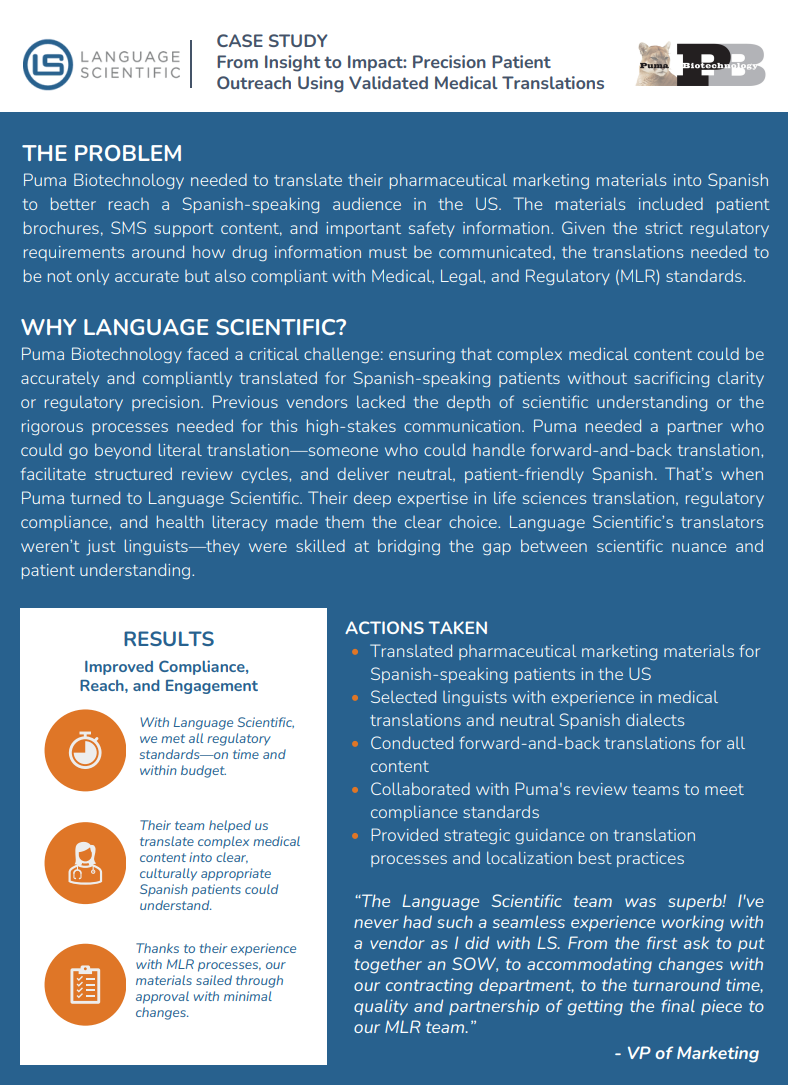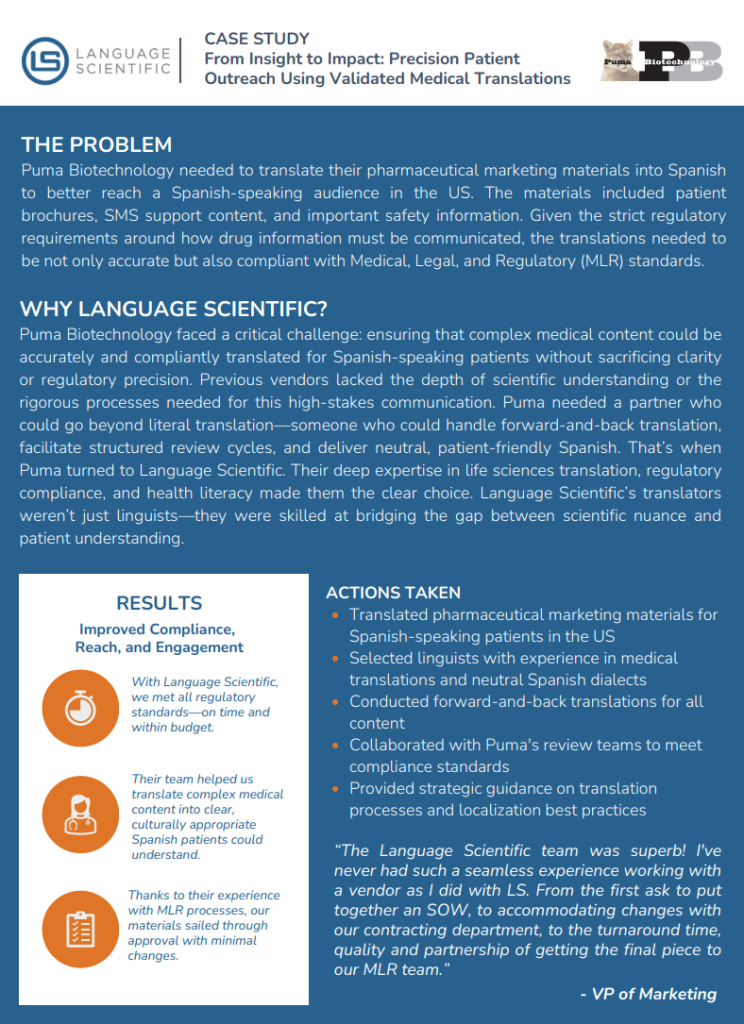Questions to Consider for Your Contentful Translation Project Contentful is a versatile content management system
Comparison Between AI-enabled Translation And AI Human-Assisted Translation In Clinical Trials Introduction Many clinical trials
Embarking on a Joomla translation project can significantly enhance your website’s accessibility and reach. By
Reasons For Delay In EC Implementation Of The In-Vitro Diagnostic Regulation For Language Translations Introduction
Best Practices for Software Localization What Is Software Localization And Why It’s Essential Software Localization
Website localization or website translation is the process of modifying an existing website to make
Building upon our previous discussion on recruitment strategies for Cognitive Debriefing (CD), we now transition
Top Three Pros And Cons of using AI In Medical Translations Introduction In today’s rapidly
Continuing from our discussion on the best practices for conducting Cognitive Debriefing (CD), let’s delve
Understanding the Importance of Accurate DICOM File Translation in Medical Imaging DICOM (Digital Imaging and
EUDAMED And The 2017 EU In-Vitro Diagnostic Regulation (IVDR) Introduction In January 2024 the European
Complying With European Medical Device Regulation (MDR) Language Translation Requirements Introduction The European Union Medical
Language Scientific Announces Webinar on AI Innovation for Complex Multimedia Localization Medford, MA – June
Patient Safety Implications Of The Recent Delay By The European Union In Complying With In-Vitro
Introduction EU Regulation 2017/746 is a regulation enacted in 2017 for releasing in-vitro medical devices
The impact of language errors in clinical trials can be significant, leading
Language Scientific’s Information Security System Achieves ISO 27001:2013 Certification A Testament to Unwavering Commitment to
When to Use AI-Optimized Scientific Translation Services Versus Human Translators In today’s fast-paced world of
The Evolution of Machine Translation: From Rule-Based Systems to Generative AI Machine translation has come
Language Scientific, Inc.® is a privately held corporation headquartered in Needham, Massachusetts.
Language Scientific, 100 Crescent Rd Needham, MA 02494
+1 617-621-0940
info@languagescientific.com



See how Puma Biotechnology improved compliance, engagement, and clarity using validated Spanish medical translations.